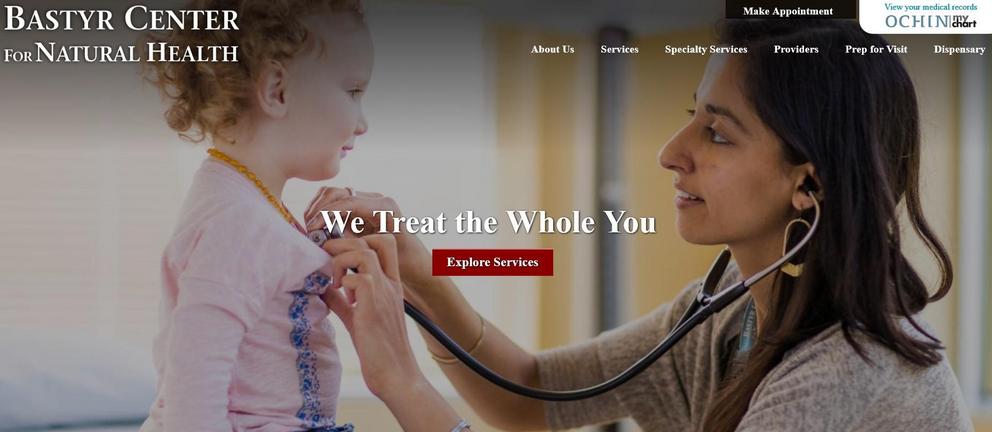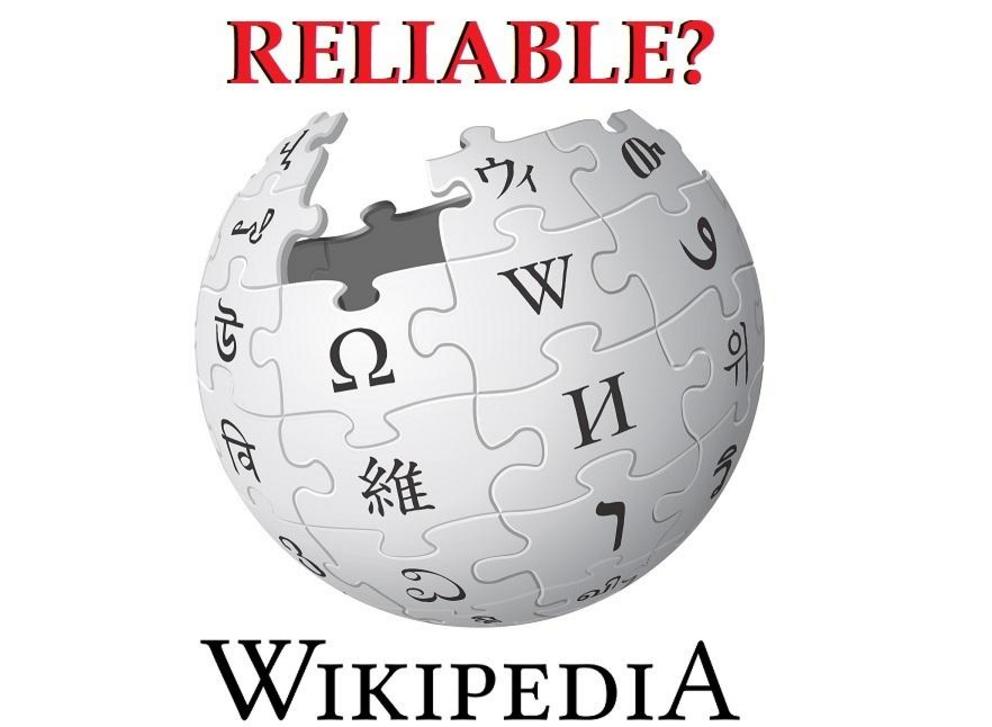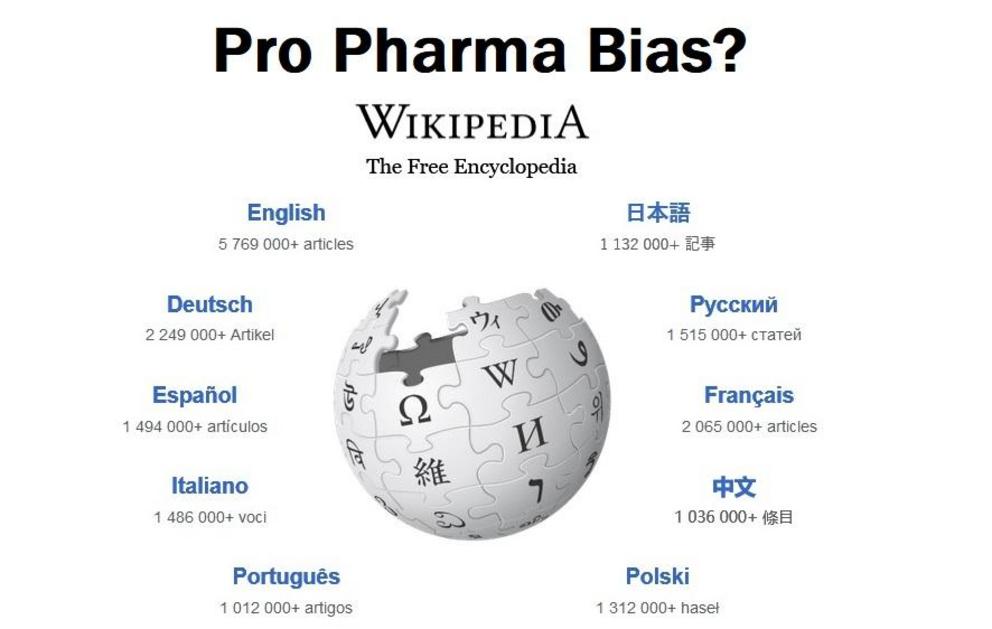Naturopathy: Wikipedia’s assault on natural medicine
 Bastyr Center for Natural Health is the largest natural medicine clinic in the Pacific Northwest, with approximately 35,000 patient visits annually. Bastyr Center for Natural Health is the teaching clinic of Bastyr University.
Bastyr Center for Natural Health is the largest natural medicine clinic in the Pacific Northwest, with approximately 35,000 patient visits annually. Bastyr Center for Natural Health is the teaching clinic of Bastyr University.
Wikipedia’s Disdain Towards Alternative Medical Experts: The Case of Naturopathy
Americans are increasingly turning to Complementary and Alternative Medical (CAM) systems for their healthcare needs. This trend has been underway for several decades.
This has been perceived as competition by the medical establishment. The reasons for this growing popularity include the cost of conventional treatments, rising out-of-pocket expenses, serious drug adverse effects, and physician and diagnostic errors, which continue to plague the orthodox medical establishment.
More than ever, people are questioning whether conventional medical treatments are as safe and effective as promised.
According to the federal National Center for Complementary and Integrative Health, approximately 83 million American adults (38%) used some type of CAM protocol or treatment in 2018, the most popular being supplements such as Omega-3, glucosamine, coenzyme Q-10, melatonin and botanical supplements such as ginseng, ginkgo, and echinacea.
In 2007, the National Health Interview Survey calculated there were approximately 354 million visits to CAM practitioners; today that figure is significantly higher as CAM enters mainstream medical practice and is gradually being covered by insurance companies.
Outside of the U.S., surveys show CAM is more popular. In South Korea, 75% of the population used a CAM treatment annually and 52% of Australians use CAM regularly.
These healing modalities include acupuncture, Chiropractic, homeopathy, naturopathy, the Chinese and Indian Ayurveda medical systems, orthomolecular and energy medicines, meditation and stress-reduction techniques, Chinese martial arts and yoga, nutritional counseling, and a wide range of massage and mind-body therapies.

Wikipedia’s co-founder Jimmy Wales claims to hold high standards of objectivity and balance in the content of the online encyclopedia and the integrity of his volunteer army of editors. Indeed this is largely true for non-controversial content where economic, political, social factors hold no consequence.
Yet, when it comes to the composition and editing of CAM systems and natural healthcare, in our opinion Wikipeida is an arsenal of misinformation and lies; we believe it has become a malignant growth to serve the ideological and financial purposes of select individuals and groups Wales has shown favor towards.
A group of individuals and organizations, collectively known as Skeptics, who assert they represent “science-based medicine” now portend to be the final arbiters of what is and is not sound medical practice.
However, it is our opinion the Skeptics are grossly biased, widely uneducated about CAM, and are both anti-science and anti-health.
Skeptics consistently refuse to accept the enormous volume of published CAM research because it is contrary to skepticism’s regressive understanding about medicine and limited to a pharmacological model.
Upon visiting Wikipedia’s page for Naturopathy, the visitor will immediately read in the opening paragraphs:
“Naturopathy or naturopathic medicine is a form of alternative medicine that employs an array of pseudoscientific practices branded as “natural”, “non-invasive”, or promoting “self-healing”. The ideology and methods of naturopathy are based on vitalism and folk medicine, rather than evidence-based medicine (EBM)… Instead, naturopathic practice rely on unscientific notions, often leading naturopaths to diagnoses and treatments that have no factual merit…. Naturopathy is considered by the medical profession to be ineffective and possibly harmful, raising ethical issues about its practice. In addition to accusations from the medical community, such as the American Cancer Society, naturopaths have repeatedly been accused of being charlatans and practicing quackery.”
The page is riddled with references to the most malicious voices and publications in the Skeptic community including the Skeptical Inquirer, Stephen Barrett (Quackwatch), Kimball Atwood (Science Based Medicine blog), David Gorski (Science-Based Medicine blog), Barry Beyerstein (Quackwatch), Arnold Relman (Quackwatch), Victor Herbert (Quackwatch), Britt Hermes (Science-Based Medicine blog), Jann Bellamy (Science-Based Medicine blog), Edzard Ernst (Center for Inquiry), William Jarvis (Quackwatch), the National Council Against Health Fraud (Stephen Barrett’s pro-industry supported front organization) and The Skeptics Dictionary.
All told, approximately 20% of the citations on Naturopathy’s page originates from Skeptic resources. In every case, original citations are extremely biased, derogatory and demeaning towards Naturopathy.
The sole intention of organizations such as the Center for Inquiry, the Society for Science-Based Medicine and Quackwatch is to eradicate Naturopathy from clinical medical practice.

Stephen Barrett’s characterization of naturopaths is a commonly held image throughout the Skeptic community:
“I believe that the average naturopath is a muddlehead who combines commonsense health and nutrition measures and rational use of a few herbs with a huge variety of unscientific practices and anti-medical double-talk.”
The Wikipedia page quotes Barrett’s statement that Naturopathy is “simplistic and that its practices are riddled with quackery” and Barrett’s Quackwatch colleague William Jarvis is quoted,
“Quackery not only harms people, it undermines the ability to conduct scientific research and should be opposed by scientists.”
Such a statement clearly has no place on an encyclopedia page that pretends to convey a neutral perspective.
Alternatively, if we look at a peer-reviewed article published in the journal Primary Care by a Fellow at the University of Wisconsin’s Department of Family Medicine, we discover Naturopathy as a completely different medical system than that presented on Wikipedia:
“Naturopathy is a distinct type of primary care medicine that blends age-old healing traditions with scientific advances and current research. It is guided by a unique set of principles that recognize the body’s innate healing capacity, emphasize disease prevention, and encourage individual responsibility to obtain optimal health. Naturopathic treatment modalities include diet and clinical nutrition, behavioral change, hydrotherapy, homeopathy, botanical medicine, physical medicine, pharmaceuticals, and minor surgery. Naturopathic physicians (NDs) are trained as primary care physicians in four-year, accredited doctoral-level naturopathic medical schools.”
This is a far more factual description of Naturopathy than Wikipedia editors pervert and condemn.
The origins of modern Naturopathy can be traced back to the European “nature cure” practiced in the nineteenth century that explored the healing characteristics of fresh water and air, sunlight, natural diet, exercise and medicinal herbs.
Today, scientific research has collected an enormous body of literature showing the benefits for each of these natural determinants to physical health and mental wellness.
The author also notes that common criticisms against Naturopathy and the research supporting its efficacy and safety are “taken out of context” and require “Whole Systems Research” to properly understand its therapeutic value.
Naturopathy properly falls under holistic medicine, which investigates the “whole person” — body, mind, emotions and the environment.
Orthodox medicine, on the other hand, is utterly clueless about the new models to explain the causes of health and the proliferation of disease according Whole Systems Research.
“The optimal research model used for evaluating naturopathic interventions must allow for individualized, multifaceted treatment strategies and potentially synergistic effects. Whole systems research (WSR) is an emerging research paradigm, which may provide a better assessment of CAM therapies than classic RCTs [Random Controlled Trials], which attempt to determine the single best treatment for all patients.”
As with many of Wikipedia’s entries for CAM systems, there are heated debates, controversies and outright disdain carried out by Skeptic editors who are determined to destroy these practices. In almost every case, the more ferocious voices arguing against corrections being made are editors who we have identified as Skeptics.
It is not uncommon to find the same Skeptic editors dominating multiple discussions focusing on a variety of CAM subjects on Wikipedia.
One Wikipedia category is “Questionable Science,” which Wikipedia defines separately from pseudoscience. This includes
“Theories which have a substantial following such as psychoanalysis but which some critics allege to be pseudoscience may contain information to that effect but generally should not be so characterized.”
However, Wikipedia continues to label most medical systems falling under CAM categories as pseudoscience despite their large followings.
A German study investigated the use of CAM among cancer patients in 18 countries, including the U.S. The researchers found a steady increase in overall CAM use, from 25% in the 1970s and 1980s to 49% after 2000. It is estimated that over 40% of cancer patients currently use some form of CAM therapy, natural supplements, which fall under naturopathy, being the most common.
Nutritional Sciences
Naturopathic doctors are also far better educated in nutritional sciences and regularly include nutrition in their patient protocols. Nutrition is simply practical advanced biochemistry that every medical doctor should be familiar with.
Yet this is not the case. The average graduate from a conventional medical school receives less than 20 hours of study in diet and nutrition and this is not enforced.
Many physicians we have interviewed over the years said they received far less hours. Commenting on the lack of practical skills in nutrition for doctors to treat common ailments as weight gain, blood sugar, blood pressure and heart disease, Dr. David Eisenberg, Director of Nutrition at Harvard’s School of Public Health opined that
“it is a scandal that health professionals are not introduced to these facts above and beyond minimal information about nutritional deficiencies in biochemistry…. Nor are they required on board certification whether it’s to become an internist, cardiologist, endocrinologist — you name it.”
On average, a Naturopath has received a minimum of 150 hours of nutrition education and over 1,300 hours of clinical nutritional training.
Higher Standards for Health Education
Furthermore, Naturopathic doctors undergo a more rigid curriculum required for certification, which includes the same diagnostic, biomedical and clinical sciences as medical doctors.
Naturopathic students also carry on average larger credit loads: under 800 hours for the first two years of medical school compared to 1000-1100 hours for Naturopathic college.
Finally, unlike students in a 4-year medical school, Naturopathic students will receive upwards to 4,100 contact hours of direct training, almost double that received in a conventional medical school.
The fundamental difference is that Naturopathic students are educated in natural and non-toxic drug therapies with more emphasis focused upon disease prevention.
Arguably, Naturopathic physicians are trained equally, and perhaps more thoroughly, than allopathic doctors. For this reason, more hospitals are now hiring Naturopathic doctors on their staffs in the 23 states and territories that currently allow licensure to practice.
Among these are the Cancer Treatment Centers of America, Columbia University, Fred Hutchinson Cancer Research Center, Goshen Center for Cancer Care, the University of Kansas Medical Center, Northwestern Osher Center, Oregon Health Sciences University, and the state universities of Arizona, California at Irvine, Washington, Wisconsin and Pittsburgh.
Therefore to categorically write-off Naturopathy as quackery is sheer nonsense and is directly contrary to current medical trends.
Wikipedia’s statement that “Naturopathy lacks an adequate scientific basis, and it is rejected by the medical community” is patently and maliciously false. Only among the fringe scientific factions of modern day Skepticism do we find a contingent of individuals fixated and rigidly dedicated to denying the preventative and therapeutic value of Naturopathy and other CAM practices.
In recent months, Wikipedia’s Naturopathy Talk page has experienced renewed activity with the legitimacy of its derogatory characterization of the discipline again in question. Junior editors who do not have permission to correct the page’s glaring inaccuracies noted:
This article contains incorrect and/or misleading information that violates Wikipedia’s own policies and guidelines. Further, the page has been “frozen” by Wikipedia until 2019, which effectively silences anyone with accurate, verified information, at least within the Wikipedia platform. by Slammervic39 00:52, 7 October 2019 (UTC)
[Wikipedia editors’] Inaccurate statement:
“Over the years, many practitioners of naturopathic medicine have been found criminally liable in the courts of law around the world.”
Wikipedia Violations
- Violates validity- no citation
- Violates neutral point of view
- Does not align with content that would be appropriate/relevant to include in a lead section because would not be representative of a large professional majority. Slammervic39 01:28, 7 October 2019 (UTC)
Remove or amend inaccurate statement [by Wikipedia editors]:
“Naturopathic medicine is considered by the medical profession to be ineffective and possibly harmful, raising ethical issues about its practice.”
Wikipedia Violations:
- Violates neutral point of view: Fails to provide unbiased, balanced information that is representative of the majority of naturopathic doctors. This is an article written by someone who, according to Wikipedia, is an “active skeptic” and “outspoken critic of naturopathy”. Understandably, the author writes from a biased perspective. He often uses loaded language, draws inaccurate and unverified conclusions from the sources he cites, and states his opinions as facts. (https://en.wikipedia.org/wiki/Kimball_Atwood) Slammervic39 01:58, 7 October 2019 (UTC)
The editor, Slammervic39, who listed the above violations concerning validity, neutral point of view, verifiability, and a failure to properly provide citations, was eventually blocked by one of the Wikipedia’s senior Skeptic editors “Roxy the dog”. The anonymous Roxy is a long-time senior editor who has earned the reputation of being a fanatical Skeptic ideologue.
Naturopathic physicians are denied recognition for any expertise in their practice to qualify them making corrections or adding positive content to the Wikipedia page.
Wikipedia’s hypocrisy regarding who can and who cannot edit pages is brutal. While conventional medical doctors are actually recruited to write content, experts practicing CAM therapies are routinely excluded, blocked and banned on charges of “conflicts of interest.”
In his attempts to correct erroneous information on the Naturopathy page, the President of the Council on Naturopathic Medical Education, the leading organization for accrediting Naturopathy college programs and licensing exams in Canada and the U.S. was banned by Skeptics.
Dr. Colleen Huber is an internationally recognized naturopath. In her editorial “How Wikipedia Got It Wrong About Naturopathic Medicine,” she writes:
“Physicians who attempt to edit the Naturopathy page or to mention ongoing medical research in naturopathic colleges and institutions, or to appeal to open-minded neutrality, have all been banned from editing. Naturopathic physicians have attempted to point out that naturopathy is the original evidence-based medicine, drawing not just from the last century and two continents that conventional medicine draws from, but rather from all known human history and all inhabited continents. All of this is ignored by the Wikipedia editors.”
Below is an exchange between a naturopathic doctor who made attempts to present the case of Wikipedia’s distortion and misstatements on a “teahouse” page where new editors visit to put forth their difficulties in editing entry content:
Physician:
“A group of full-time activists (I call them as I reach for the most tactful term) makes changes to the Naturopathy page many times per day. Those changes are consistently in a derogatory direction toward naturopathic physicians. I see that naturopathic physician edits are not allowed to stand; they are reverted back to libel within several minutes by this vandalizing group, many of whom are outside the U.S., evading U.S. libel laws…. What recourse does the public or the naturopathic profession have to correct the quickly increasing number of lies that comprise the Wikipedia page on Naturopathy? … “Talk” or other negotiation with the cyberbullies is not on the table, due to their flagrant violation of law and ethics. Will Wikipedia administrators take action against this problem?”
Skeptic Editor 1:
“Because naturopathy is a fringe topic based in large part on pseudoscience, as reported by reliable sources, our experienced editors who work to defend the encyclopedia from content endorsing pseudoscience will always monitor this article closely. This is bound to hurt the feelings of the advocates of naturopathy, but that is the way things are, and all concerned should avoid insulting language. That includes you, with your talk of “evading U.S. libel laws” and “flagrant violation of law and ethics”. You are coming perilously close to violating our policy calling for No legal threats. Those who make such threats are blocked from editing until the threat is withdrawn or all court cases are resolved.”
Physician:
“… I regret to inform you that the sources you call “reliable” have only been reliable to consistently misrepresent and falsify the history and the effects of naturopathic medicine. The cyberbullying that has damaged the Naturopathy page on Wikipedia has continually worsened in large part due to the echo chamber reliance on such sources, and I am indicating to you the problems that arise from allowing such behavior to continue. I have shown that the Naturopathy page fulfills the Wikipedia definition of cyberbullying tactics. Please be clear: Are you defending the cyberbullying tactics? If not, what will be done to stop the problem?”
Skeptic Editor 1:
“If reliable scientific sources say that naturopathy is largely based on pseudoscience, then so too shall Wikipedia. It cannot be any other way. You are, of course, entirely free to promulgate your beliefs on other websites, but Wikipedia does not exist to validate or promote pseudoscience in any way, shape or form.”
Skeptic Editor 2:
“Wikipedia has a policy of not giving equal validity to fringe subjects and pseudoscience. This is not bullying.”
Skeptics believe they are a fourth estate, given special privilege and rights by Jimmy Wales, to be the harbingers of medical truth fashioned in their own warped image of scientific reductionism and denial.
In effect, this is a form of medical McCarthyism. They have become the guardians and attack dogs of those ideologues such as Wales who use Wikipedia to promulgate their own personal agendas. They act as if they have a right to smear and destroy those who expose their double standards and hypocrisies.
In our opinion, Skeptics’ control of Wikipedia CAM pages is nothing more than mob rule by illiterate proletariats.
With healthcare costs rising steadily beyond the reach of the average American – patient out-of-pocket spending for healthcare rose to $365 billion in 2017 compared to $34 billion for CAM services and products – and with every indication this will continue into the future, Naturopathy remains a valuable line of defense in the prevention and treatment of disease.
Then we should be asking why Jimmy Wales is permitting the Skeptics to rule Wikipedia information about Naturopathy and other CAM therapies?
In summation, we have more illnesses – obesity, heart disease, diabetes, cancer, neurodegenerative diseases – than ever before in our nation’s history. What is missing are three principles to properly front the decline in Americans’ quality of health:
- a proper primary and secondary educational program for disease prevention in our school systems
- honor and uphold individuals’ freedom to make medical choices in their healthcare
- to conduct clinical trials comparing the effectiveness and safety of CAM therapies versus conventional therapies for specific diseases
Throughout our history, from the Salem witch trials to McCarthyism and Red-baiting and now censorship by the current surveillance state, we have always had small groups of individuals who are intolerant of any reality other than their own. Jimmy Wales and Wikipedia Skeptics are simply the latest incarnation of this dogmatic prejudice that is further eroding the nation’s quality of health.
For full references please use source link below.

